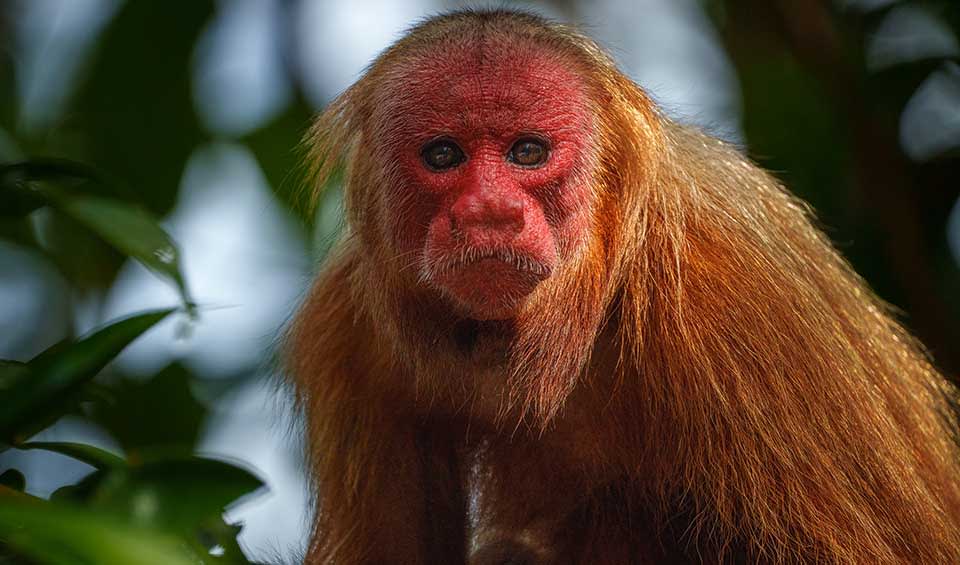A fascinating and visually striking primate native to the Amazon rainforest regions of Brazil, Peru, and Colombia. This monkey is most notable for its distinctive bald head and vivid red face, which are unlike any other primate. The bright red coloration of its face is not just for show; it is actually an indicator of health, signaling to potential mates that an individual is fit and free from parasites. But what sets them apart is their very short tail, which is typically only about 15 cm (6 in) long, much shorter than those of other New World monkeys.
Bald uakaris have a robust physique suited to their arboreal lifestyle, spending much of their time in the trees. They have powerful limbs for leaping from branch to branch, which is their primary mode of locomotion. This high-energy lifestyle requires a nutritious diet, and the bald uakari primarily feeds on seeds, fruits, and occasionally insects and small animals. Their strong jaws and teeth allow them to crack open hard shells to reach seeds that other animals can’t access, playing a crucial role in their ecosystem by helping to disperse seeds and maintain forest diversity.
Living in the flooded forests of the Amazon, bald uakaris are adapted to an environment where water levels can fluctuate dramatically. They are good swimmers, which is essential for navigating their watery habitat. Socially, these monkeys are quite gregarious and live in large groups that can number over a hundred individuals. Within these groups, there is a complex social structure that helps maintain order and facilitates the communal care of the young.
Distribution
 Brazil
BrazilAnything we've missed?
Help us improve this page by suggesting edits. Glory never dies!
Suggest an editGet to know me
Terrestrial / Aquatic
Altricial / Precocial
Polygamous / Monogamous
Dimorphic (size) / Monomorphic
Active: Diurnal / Nocturnal
Social behavior: Solitary / Pack / Troop
Diet: Carnivore / Herbivore / Omnivore / Piscivorous / Insectivore
Migratory: Yes / No
Domesticated: Yes / No
Dangerous: Yes / No




